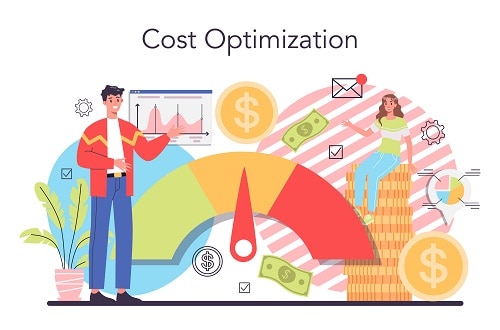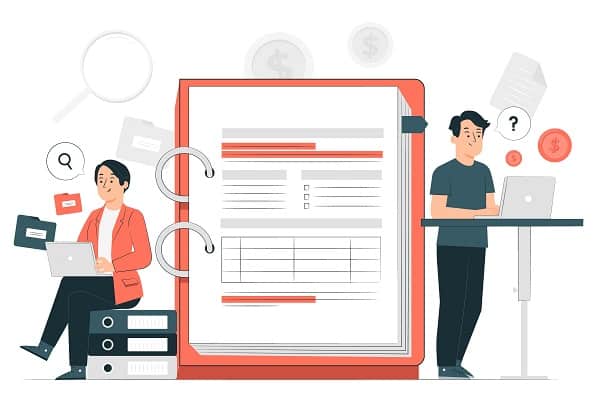An efficient cash flow management can ensure business success and bring you further growth.
We all know how money matters can be daunting and it’s easier to just focus on the good stuff — the sales and revenue. But having a cash flow management system is crucial if you want to sustain your business.
What is cash flow management and why is it important?
Cash flow management is basically knowing and tracking how much money comes into your business and controlling where that money goes so you can accurately forecast cash flow needs. All revenue and expenditures are reflected here and this helps you to easily check your business’ health.
A positive cash flow can ensure that your business is running smoothly — timely paid utilities, payroll, product/service cost, and even have extra funds for growth initiatives. You can also easily recalibrate and move funds depending on the business focus at the moment.
Many small to medium businesses fail when owners intentionally avoid checking where the money really goes. Focusing only on the sales revenue is not good since this only gives you half of the whole equation.
Proper cash flow management can help you focus on the important things and budget wisely. But as you’re here, no need to worry because we’ve got 10 useful tips to help you with effective cash flow management.
10 tips for effective cash flow management

1. Price your products/services right
Pricing your products and services fairly, and not too competitively, can make you more enticing to customers than your competitors.
This doesn’t mean being the cheapest and most affordable on the market. You must first determine your materials and manpower costs. Then check your competitors’ pricing and see if you can beat them.
It doesn’t always mean that your pricing should be lower either. Leverage on the value you provide your customers and price your products at a rate that you think is fair and would give you enough profit.
2. Check your products’ profitability
Cash flow management is often tied to supplies and inventory management. It’s important for small businesses to forecast properly and offer profitable products or services to maximize profitability.
You can ride trends and seasons to push your offerings. Or make sure your products have an evergreen demand, meaning they will sell no matter the season.
Find the right balance between stocking and how fast your items move. Overstocking and missing trends would only leave you with too much inventory that you can’t sell and face liquidity issues in the long run.
Also read: Here are The Best-Selling Products in the Philippines
3. Do a cash flow projection
Knowing how much cash will come into the business will help you plan your budget wisely. You can also look for revenue and expense trends to anticipate how you can keep your numbers up. This will help meet your business’ needs and plan for unexpected expenses.
Usually, cash outflow during the ‘ber’ months are higher, but know that this could also mean higher cash inflow if you meet or exceed your sales target.

4. Send invoices quickly
You’re running a business so it’s also important to close the deal and send invoices as quickly as possible. To help you further with this, we recommend setting specific payment terms and timelines so your customers would also be responsible to settle their dues on time.
The faster money comes in, the faster you can acquire new inventory or pay for your own expenses.
5. Schedule your payments effectively
Besides setting up internal payment terms for your customers, being responsible through timely settlement of bills is something you need, too.
Plan your payments efficiently to avoid bulk expenses that could affect your cash flow. Determine the specific dates of the month when your payables are due, then work out a weekly or monthly schedule on when to pay for each.
6. Keep detailed records of your finances
Also helpful during tax season, it’s important to have a record of when the money comes in and where it goes. This will help you easily see where you are financially and be more responsible with your business decisions.
At the same time, keeping detailed records also helps with financial analysis and projection, which can benefit the business’ growth. In case there are cash flow problems along the way, your records can save you from struggling to find the root cause.

a regular audit of your cash flow.
7. Have an emergency fund on hand
Running a small business is a commitment and often a sole responsibility of one person. Having an emergency fund would give you peace of mind that the business can continue during uncertain times.
You’ll easily recover from small mishaps or survive calamities that could lead to worse repercussions if your cash flow is not in order. An emergency fund is your safety net and lifeline.
8. Cut unnecessary spending
Many businesses do cost-cutting only when they experience a decline in profitability. But a wise business owner would take steps even before this happens.
Avoid unnecessary expenses that could affect your cash flow and profit. If you have a big office space, maybe you can have a hybrid work setup so you can get a smaller place. Or you may have hired too many employees whose work can be automated.
Another way to cut your expenses is avoiding late payment fees. Settle your payables on time and waste not on penalties.
9. Consider leasing instead of buying
If you use equipment or machinery, it would be expensive to buy a new one upfront. Why not look for companies that lease them instead?
Yes, you’ll be making payments every month but you could save a lot of money if you factor in maintenance and repairs. You can use your savings for other things your business needs, or add it to your emergency fund.

10. Use tools and apps available
With a lot of business management apps and tools available today, you can easily automate things like sending invoices for collection and monitoring your inventory.
At the same time, you can log your expenses and track your sales for an easier cash flow projection. Some good tools require monthly subscriptions so weigh wisely which can really help optimize your processes.
Some of the best tools to use include: PlanGuru, QuickBooks, and Scoro. If you’re a bit of an excel nerd, you can maximize Google Sheets and create a platform that works for you.
Optimize your small business cash flow

It’s important to be smart when handling your cash flow to achieve business sustainability and become profitable.
Though some may get lucky with a high-risk and high-return strategy, this won’t work especially if you have limited resources. Some good businesses fail because of mismanaged cash flow and overspending.
Run your business like a pro — be open to take risks but be smart in handling your finances to further scale up your business.
Here’s to your positive cash flow and a successful hustle!
Here are more tips to increase your cash flow:
4 Online Selling Tips to Increase Your Sales
Upselling Techniques for Your Online Business
How to Use the 4Ps of Marketing in Ecommerce






